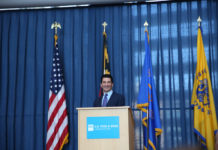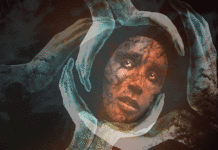was strictly forbidden.
“I do have cousins that have messed with drugs or were a disappointment to the family,” Almuktar said. “Coming from a Muslim family, you know those are certain things you’re not supposed to do.”
Islam considers drug or alcohol use a sin, making addiction somewhat of a taboo subject in the Muslim community. Almuktar said his friends that abused substances often tried to repress their addiction, rather than seek professional help, in fear of disgracing their family name.
But that stigma hasn’t stopped addiction from sweeping the vast Muslim population in Dearborn, said Dearborn Police Chief Ronald Haddad in an interview with the Detroit News.
“Muslim kids are like every kid in America,” Haddad told the Detroit News. “A lot of them are getting hooked. But there’s a stigma in the community that stops people from discussing drug abuse, which possesses yet another challenge to effective solutions.”
Instead, Almuktar has witnessed many families send away or ostracize loved ones that were unable to get clean and sober. One of his friends, he said, has lived in Lebanon for nearly a year after several failed stints at recovery drove his family to send him there.
“This guy comes from a really good family, he’s very religious, and they ended up sending him there to live with his aunt so he’d be away from the drugs and people here,” Almuktar said. “I’ve heard this a lot in the Muslim community. It’s kind of like their rehab.”
But while the punishments for substance abuse can be harsh in the Muslim community, there is still room for forgiveness.
“A lot of Muslims believe in Allah being merciful and forgiving, and that if you truly do ask for forgiveness, and mean it, and change as a person, your slate gets wiped clean,” he said.
That starts with recovery. Millati Islam, a program established in Baltimore that is similar to Alcoholics Anonymous, offers a Muslim adaptation of the 12-step program.
Millati Islami, according to its website, is a fellowship of men and women joined together on the “Path of Peace.” The group shares its experiences, strengths and hopes while recovering from their “active addiction to mind and mood altering substances.”
But the religion appears to be less forgiving than others of those who relapse. While Almuktar, an aspiring pharmacist, acknowledges that addiction is often beyond one’s control, he is unsure of where Islam stands regarding people in limbo of relapse and recovery.
“I don’t want to say that those people aren’t forgiven or that there’s no hope for them, but I don’t have an answer for that,” he said.
Almuktar also stressed that, as in any religion, the Muslim community’s response to addiction varies among individuals and families.
“There are a lot of Muslims out there,” he said. “How I was raised is different than how my cousins were raised, and so on.”















